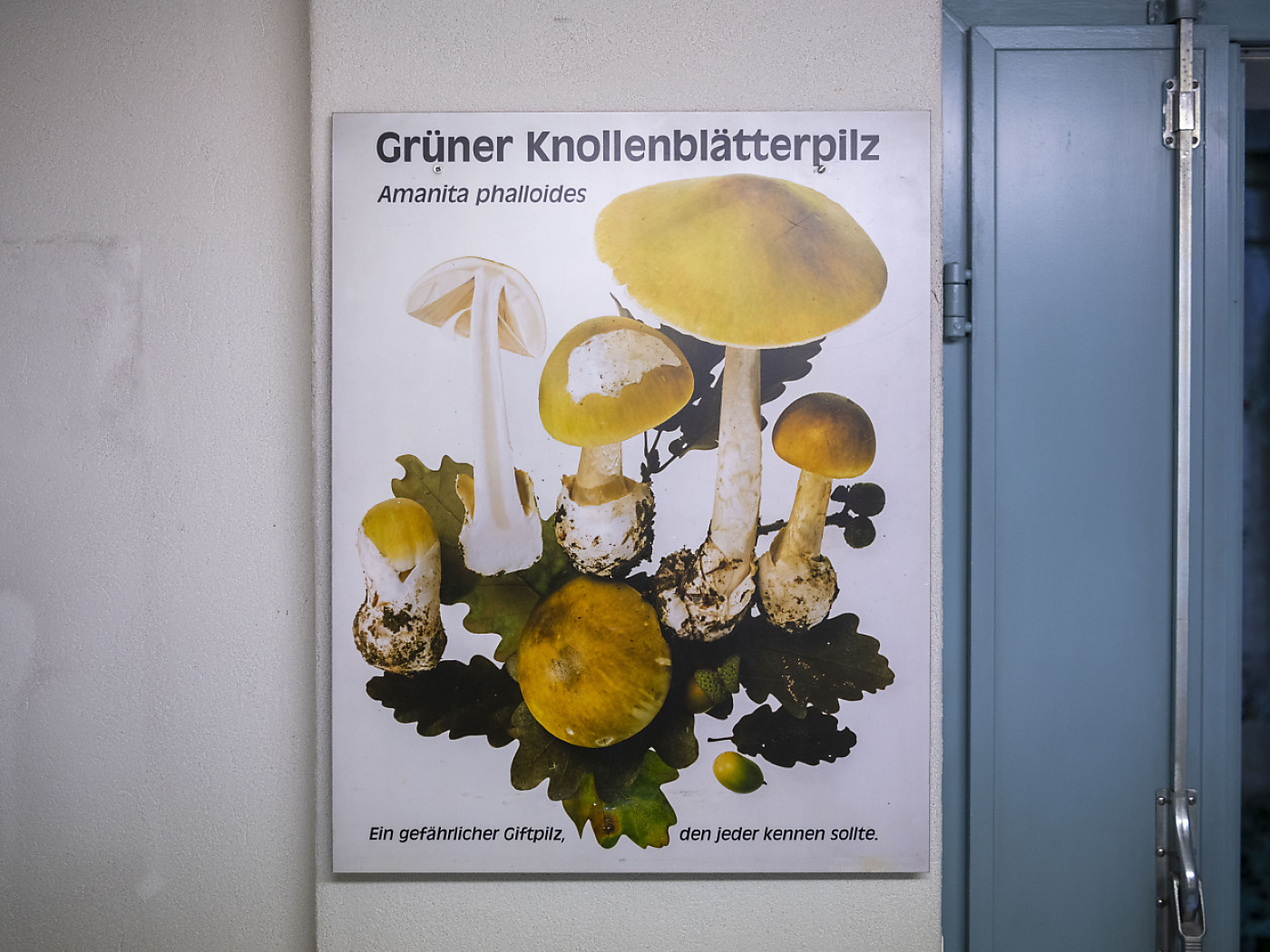
Swiss mushroom pickers face shortage of poison antidote

The current shortage of the antidote used to treat mushroom poisoning is problematic. Tox Info Suisse urges amateur mushroom pickers to have all mushroom pickings checked by an official mushroom inspection body.
The antidote used in cases of Amanita phalloides poisoning is not available in Switzerland or abroad until at least mid-November, the Tox Info Suisse foundation said on Monday. Other therapeutic options are also limited.
+ Get the most important Swiss news directly in your inbox
Every year, Tox Info Suisse reports several hundred cases of mushroom poisoning, some of them serious. Mushroom poisoning that is not properly treated can be fatal.
+ Good mushroom harvest results in poisoning boom
In 2023, Tox Info saw 98 cases of mushroom poisoning documented by doctors (compared with 91 the previous year), including one serious case in an adult, according to the latest data provided to Keystone-SDA news agency. Only one case, of moderate severity, was attributable to Amanita phalloides.
In order to limit the number of potentially serious health problems to a minimum, the public is invited to have all self-picked mushrooms inspected by a mushroom control station. The addresses of these local control points can be found at www.vapko.ch.
In Switzerland the emergency number for poisoning is 145. Specially trained physicians will give advice 24/7 in cases of poisoning with, for example, chemicals, pharmaceuticals, other drugs, poisonous plants, mushrooms or venomous animals.
Translated from French with DeepL/gw
This news story has been written and carefully fact-checked by an external editorial team. At SWI swissinfo.ch we select the most relevant news for an international audience and use automatic translation tools such as DeepL to translate it into English. Providing you with automatically translated news gives us the time to write more in-depth articles.
If you want to know more about how we work, have a look here, if you want to learn more about how we use technology, click here, and if you have feedback on this news story please write to english@swissinfo.ch.

In compliance with the JTI standards
More: SWI swissinfo.ch certified by the Journalism Trust Initiative


























You can find an overview of ongoing debates with our journalists here . Please join us!
If you want to start a conversation about a topic raised in this article or want to report factual errors, email us at english@swissinfo.ch.